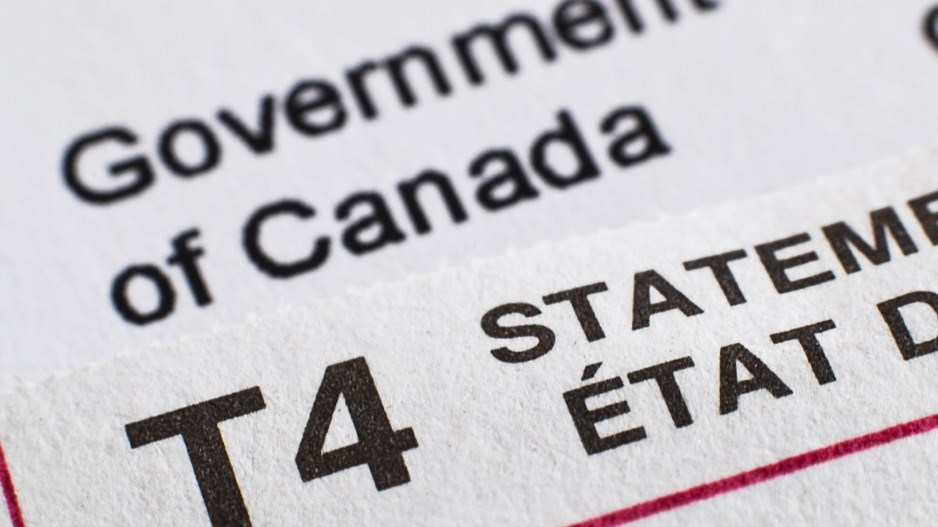While Canadian summers provide an opportunity for residents to completely abandon their daily routines, certain features of our lives are evident even when we are on vacation.
Inflation may be down, but the proportion of Canadians who are noticing higher prices when they buy groceries or gas remains .
In British Columbia, no elections are expected in 2023. We have lived with new councils and mayors for less than a year, the next chance to vote for legislative assembly candidates will happen in 2024 and – unless something changes drastically in Ottawa – a federal ballot will take place in 2025.
Political campaigns have been won or lost on a party’s position on taxes, even if grandiose promises of no severe increases are not kept after all the votes are tallied. In many instances, the notion of the government collecting more (or, some would say, keeping more) from residents is tied to offering solutions to existing problems.
Last month, Research Co. and Glacier Media asked Canadians if they would “definitely” or “probably” pay higher taxes to adequately address seven issues.
There are two challenges that are at the top of the list, with 57 per cent of Canadians telling us they would be willing to pay higher taxes to deal with homelessness and climate change.
The regional breakdowns are a bit surprising. In British Columbia, only 51 per cent of residents think raising taxes to house those without a home is a course of action they support. It may be a majority, but the proportion is notably lower than what is observed in Atlantic Canada (61 per cent), Quebec (also 61 per cent), Alberta (60 per cent) and Ontario (58 per cent).
In the first 15 years of this century, British Columbia led the way whenever Canadians were asked about environmental issues. When it comes to raising taxes to deal with global warming, the province is now in the middle of the pack at 55 per cent. Quebec (64 per cent), Saskatchewan and Manitoba (58 per cent) and Ontario (57 per cent) all rank higher.
Public schools have always been an issue of concern, and the notion of higher taxes to make them work better is endorsed by 56 per cent of Canadians. The willingness of Quebecers and Ontarians to pay more is also present on this issue (64 per cent and 57 per cent, respectively). B.C. is near the bottom at 51 per cent. Only Atlantic Canada ranks lower (49 per cent).
We might assume that forest fires would be a topic where British Columbia would sit ahead of the national average, but this is not the case. Just over half of Canadians and British Columbians (55 per cent each) are willing to pay more taxes to adequately deal with this challenge. Quebecers and Atlantic Canadians, who have been severely affected this year, are at opposite ends of the spectrum (at 56 per cent and 46 per cent, respectively).
For the past eight years, housing has been facing B.C. Once again, not every resident of the province is convinced that more taxes are the answer to the problem. Majorities of Canadians (54 per cent) and British Columbians (53 per cent) would consent to higher taxation in exchange for housing improvements.
This leaves only two issues where British Columbians are ahead of the national average on their willingness to pay higher taxes: Floods (52 per cent in Canada and 55 per cent in B.C.) and transit improvements (46 per cent of Canada and 49 per cent in B.C.). The skepticism of Albertans and Atlantic Canadians brings down the national numbers on each of these two challenges.
For British Columbians right now, life has become more expensive. In spite of the for government action to address homelessness, the province’s residents are not convinced that the solution will arrive in the form of additional tax revenue. A similar situation ensues with housing. The taxes that residents do not pay for (like the foreign owners’ tax) or that focus on a tiny proportion of residents (like those only applicable to homes valued at more than $3 million) .
It is clear that British Columbians are not in the best mood to embrace tax hikes, even if they are “for a good cause.” We recently experienced the defeat of incumbent mayors in Â鶹´«Ã½Ó³»and Surrey against challengers who focused on finding room for savings within city halls. BC United provincially and the Conservative Party federally may look at these municipalities for inspiration on how to win future elections, even if what was said in the campaigns differed greatly from what was actually implemented once the contenders took office.
Mario Canseco is president of Research Co.
Results are based on an online study conducted from July 22-24, among 1,000 adults in Canada. The data has been statistically weighted according to Canadian census figures for age, gender and region. The margin of error – which measures sample variability – is plus or minus 3.1 percentage points, 19 times out of 20.




